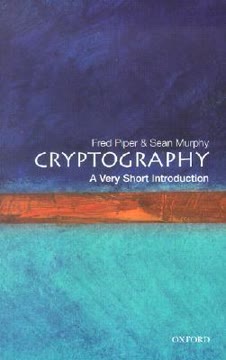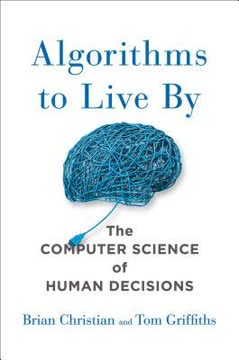Key Takeaways
1. The General Theory challenges classical economic assumptions
"The postulates of the classical theory are applicable to a special case only and not to the general case."
Paradigm shift. Keynes' work represents a fundamental departure from classical economic thinking. He argues that the assumptions underpinning classical economics are flawed and only applicable in specific circumstances. This radical perspective challenges long-held beliefs about how economies function.
Key challenges:
- Rejection of Say's Law (supply creates its own demand)
- Questioning the idea of perfect market equilibrium
- Challenging the notion of wage and price flexibility
Keynes proposes a new framework for understanding economic phenomena, emphasizing the role of aggregate demand and the potential for market failures. This shift in thinking laid the groundwork for modern macroeconomics and influenced economic policy for decades to come.
2. Aggregate demand drives economic activity and employment
"Consumption – to repeat the obvious – is the sole end and object of all economic activity."
Demand-driven economy. Keynes argues that the level of economic activity and employment is primarily determined by aggregate demand – the total spending in an economy. This contrasts with classical theory, which focused on supply-side factors.
Components of aggregate demand:
- Consumption (C)
- Investment (I)
- Government spending (G)
- Net exports (X-M)
By emphasizing the role of demand, Keynes provides a framework for understanding economic fluctuations and recessions. He suggests that insufficient aggregate demand can lead to prolonged periods of high unemployment and economic stagnation, challenging the classical notion that markets would always self-correct to full employment.
3. Savings and investment are not always in equilibrium
"An act of individual saving means – so to speak – a decision not to have dinner to-day. But it does not necessitate a decision to have dinner or to buy a pair of boots a week hence or a year hence or to consume any specified thing at any specified date."
Saving-investment mismatch. Keynes challenges the classical assumption that savings automatically lead to investment. He argues that the decision to save and the decision to invest are made by different economic actors with different motivations.
- Savings: Driven by individual households' desire for future consumption
- Investment: Determined by businesses' expectations of future profitability
This potential mismatch between savings and investment can lead to a deficiency in aggregate demand, as increased savings may not necessarily translate into increased spending or investment. Keynes suggests that this "paradox of thrift" can contribute to economic downturns and justifies government intervention to stimulate demand.
4. The multiplier effect amplifies changes in spending
"The multiplier tells us by how much the equilibrium level of income will change as a result of a change in the level of investment."
Amplified impact. Keynes introduces the concept of the multiplier effect, which explains how an initial change in spending can lead to a larger overall change in economic activity. This concept is crucial for understanding the potential impact of government policies and economic shocks.
Multiplier process:
- Initial increase in spending
- Recipients of spending increase their own consumption
- Additional rounds of spending occur
- Total impact is larger than the initial change
The multiplier effect provides a rationale for government intervention during economic downturns. By increasing public spending or cutting taxes, governments can potentially stimulate a larger increase in overall economic activity, helping to counteract recessions and boost employment.
5. Liquidity preference theory explains interest rates
"The rate of interest is not the 'price' which brings into equilibrium the demand for resources to invest with the readiness to abstain from present consumption. It is the 'price' which equilibrates the desire to hold wealth in the form of cash with the available quantity of cash."
Money demand. Keynes develops the liquidity preference theory to explain the determination of interest rates. This theory challenges the classical view that interest rates are determined solely by the supply and demand for loanable funds.
Three motives for holding money:
- Transaction motive: Everyday purchases
- Precautionary motive: Unexpected expenses
- Speculative motive: Taking advantage of future opportunities
Keynes argues that the interest rate is the reward for parting with liquidity. The demand for money (liquidity preference) interacts with the money supply to determine interest rates. This theory helps explain why interest rates might remain high even during periods of low investment, contributing to persistent unemployment.
6. Expectations play a crucial role in economic decisions
"Most, probably, of our decisions to do something positive, the full consequences of which will be drawn out over many days to come, can only be taken as the result of animal spirits."
Psychological factors. Keynes emphasizes the importance of expectations and confidence in shaping economic behavior. He argues that many economic decisions, particularly investment decisions, are made under conditions of fundamental uncertainty about the future.
Key aspects of expectations:
- Animal spirits: Spontaneous optimism or pessimism
- Conventional judgment: Following the crowd
- Confidence: Trust in the stability of economic conditions
By highlighting the role of expectations, Keynes provides insight into the volatility of investment and the potential for self-fulfilling prophecies in economic outcomes. This understanding helps explain phenomena like stock market bubbles and economic cycles driven by shifts in sentiment.
7. Government intervention can stabilize the economy
"The central controls necessary to ensure full employment will, of course, involve a large extension of the traditional functions of government."
Active policy. Keynes advocates for a more active role of government in managing the economy, particularly during economic downturns. He argues that market forces alone may not be sufficient to ensure full employment and economic stability.
Policy tools:
- Fiscal policy: Government spending and taxation
- Monetary policy: Interest rates and money supply
- Regulation: Financial markets and labor markets
Keynes suggests that governments should use these tools to smooth out economic fluctuations, boost aggregate demand during recessions, and maintain full employment. This perspective laid the foundation for modern macroeconomic policy and the development of welfare states in many countries.
8. Full employment is not guaranteed by market forces
"The outstanding faults of the economic society in which we live are its failure to provide for full employment and its arbitrary and inequitable distribution of wealth and incomes."
Market failures. Keynes challenges the classical notion that free markets will automatically tend towards full employment. He argues that economies can become stuck in a state of persistent unemployment due to insufficient aggregate demand.
Reasons for persistent unemployment:
- Sticky wages and prices
- Liquidity traps (ineffective monetary policy)
- Uncertainty and low business confidence
By highlighting the possibility of prolonged unemployment, Keynes provides a rationale for government intervention to stimulate demand and create jobs. This perspective has profound implications for economic policy and social welfare programs.
9. Wage rigidity contributes to unemployment
"To suppose that a flexible wage policy is a right and proper adjunct of a system which on the whole is one of laissez-faire, is the opposite of the truth."
Sticky wages. Keynes argues that wages tend to be rigid, especially downward, due to various institutional and psychological factors. This wage rigidity can contribute to persistent unemployment during economic downturns.
Factors contributing to wage rigidity:
- Labor contracts and collective bargaining
- Efficiency wage considerations
- Fear of wage spirals and deflation
Keynes challenges the classical view that unemployment could be solved by wage cuts. Instead, he suggests that attempts to lower wages could exacerbate economic problems by reducing aggregate demand. This insight has important implications for labor market policies and the management of economic crises.
10. Uncertainty profoundly influences economic behavior
"We simply do not know. Nevertheless, the necessity for action and for decision compels us as practical men to do our best to overlook this awkward fact."
Fundamental uncertainty. Keynes emphasizes the pervasive role of uncertainty in economic decision-making. He argues that many important economic decisions, particularly long-term investments, are made in an environment of fundamental uncertainty about the future.
Implications of uncertainty:
- Importance of confidence and "animal spirits"
- Potential for sudden shifts in expectations
- Limitations of probabilistic risk assessment
By highlighting the role of uncertainty, Keynes provides insight into the volatility of investment, the potential for economic instability, and the limitations of economic forecasting. This perspective challenges the idea of perfectly rational economic actors and has influenced fields such as behavioral economics.
Last updated:
FAQ
What is "Keynes: A Very Short Introduction" by Robert Skidelsky about?
- Concise overview of Keynes: The book provides a succinct yet comprehensive introduction to the life, ideas, and legacy of John Maynard Keynes, one of the most influential economists of the 20th century.
- Integration of biography and theory: Skidelsky combines Keynes’s personal biography with an accessible explanation of his economic theories and their historical context.
- Focus on Keynes’s impact: The book explores how Keynes’s ideas revolutionized economic policy, particularly in relation to unemployment, government intervention, and the management of capitalism.
Why should I read "Keynes: A Very Short Introduction" by Robert Skidelsky?
- Expert author: Robert Skidelsky is a leading Keynes biographer and historian, offering authoritative insights into Keynes’s life and thought.
- Accessible entry point: The book distills complex economic concepts into clear, understandable language, making it suitable for both beginners and those familiar with economics.
- Relevance to today: Keynes’s ideas about uncertainty, government intervention, and economic crises remain highly relevant in understanding modern economic challenges.
What are the key takeaways from "Keynes: A Very Short Introduction"?
- Uncertainty in economics: Keynes’s central insight is that the future is fundamentally uncertain, which challenges the idea that markets are always self-correcting.
- Role of government: Keynes argued that government intervention is necessary to manage demand and prevent mass unemployment, especially during economic downturns.
- Legacy and debate: The book discusses the rise, fall, and partial revival of Keynesian economics, highlighting ongoing debates about its relevance in contemporary policy.
How does Robert Skidelsky describe Keynes’s life and intellectual background?
- Victorian roots and education: Keynes was born into a well-off, intellectual family in Cambridge, educated at Eton and King’s College, Cambridge, and influenced by the Bloomsbury Group and philosopher G.E. Moore.
- Career highlights: He worked in the British Treasury during World War I, became a public intellectual with "The Economic Consequences of the Peace," and later advised governments during the Great Depression and World War II.
- Personal traits: Skidelsky portrays Keynes as intellectually brilliant, wide-ranging in interests, and both playful and serious in his approach to ideas and public life.
What is Keynes’s "philosophy of practice" as explained in "Keynes: A Very Short Introduction"?
- Ethical foundations: Keynes’s economics was rooted in a vision of the good life, influenced by intuitionist philosophy and the ethical teachings of G.E. Moore.
- Pragmatism and expediency: He believed in practical, flexible policy-making rather than rigid adherence to abstract principles, drawing on the political thought of Edmund Burke.
- Middle Way politics: Keynes advocated a centrist approach, rejecting both laissez-faire conservatism and revolutionary socialism, favoring expert-led, incremental reform.
How does Skidelsky explain Keynes’s critique of classical economics and the "quantity theory of money"?
- Quantity theory limitations: Keynes initially worked within the quantity theory of money but came to see its limitations in explaining persistent unemployment and economic fluctuations.
- Emphasis on demand: He argued that changes in money supply do not automatically translate into changes in output or employment, especially when confidence is low.
- Need for active policy: Keynes concluded that monetary policy alone is often insufficient, and that fiscal policy (government spending) is needed to stabilize economies.
What are the main concepts in Keynes’s "The General Theory" as presented in the book?
- Principle of effective demand: Keynes introduced the idea that total demand determines output and employment, not just supply-side factors.
- Multiplier effect: He explained how increases in investment or government spending can have a multiplied impact on income and employment.
- Liquidity preference and interest rates: Keynes developed the theory that interest rates are determined by the demand for money (liquidity preference), not just by saving and investment.
How does "Keynes: A Very Short Introduction" address the role of uncertainty in Keynes’s economics?
- Centrality of uncertainty: Skidelsky highlights that Keynes placed uncertainty at the heart of economic decision-making, distinguishing it from calculable risk.
- Impact on investment: Uncertainty leads to volatile investment and can cause economies to get stuck in low-employment traps.
- Policy implications: Because of uncertainty, Keynes argued for government intervention to stabilize expectations and support demand.
What is Keynes’s legacy according to Robert Skidelsky, and how has it evolved?
- Postwar dominance: Keynesian economics shaped Western policy for decades, emphasizing full employment and active government management.
- Crisis and critique: The rise of inflation and "stagflation" in the 1970s led to a backlash and the rise of monetarism and free-market policies.
- Contemporary relevance: Skidelsky argues that Keynes’s insights into uncertainty and the need for government intervention remain vital, especially after financial crises like 2008.
How does the book explain the debates between Keynesian and anti-Keynesian (monetarist/new classical) schools?
- Keynesian view: Emphasizes demand management, the possibility of persistent unemployment, and the need for fiscal and monetary intervention.
- Monetarist/new classical critique: Argues that markets are self-correcting, that inflation is primarily a monetary phenomenon, and that government intervention often does more harm than good.
- Ongoing dialogue: Skidelsky shows that while the pendulum has swung, neither side has fully resolved the issues Keynes raised about uncertainty and instability.
What are some of the most important concepts and terms explained in "Keynes: A Very Short Introduction"?
- Effective demand: The total demand for goods and services in the economy at a given time.
- Multiplier: The process by which an initial increase in spending leads to a larger overall increase in income and output.
- Liquidity preference: The desire to hold cash or easily liquidated assets, especially in uncertain times.
- Underemployment equilibrium: A situation where the economy settles at a level of output below full employment due to insufficient demand.
- Animal spirits: The instincts and emotions that influence human behavior and investment decisions.
What are the best quotes from "Keynes: A Very Short Introduction" and what do they mean?
- "In the long run we are all dead." – Keynes’s famous quip, highlighted by Skidelsky, underscores the need for immediate action in economic policy rather than waiting for markets to self-correct over time.
- "The master-economist must possess a rare combination of gifts… He must be mathematician, historian, statesman, philosopher – in some degree." – This quote, cited by Skidelsky, reflects Keynes’s belief in the broad, interdisciplinary nature of good economic thinking.
- "Uncertainty, Keynes suggested, is the human condition." – Skidelsky uses this line to emphasize that Keynes saw uncertainty as an inescapable part of economic life, requiring policies that can adapt to the unknown.
- "The power of vested interests is vastly exaggerated compared with the gradual encroachment of ideas." – This quote, from Keynes’s own writing, is used by Skidelsky to illustrate the long-term influence of economic thought on society and policy.
Review Summary
Reviews of Keynes are mixed, with ratings ranging from 1 to 5 stars. Some readers found it informative and well-written, praising its compact yet comprehensive coverage of Keynes's life and economic theories. Others criticized it as too advanced for beginners, lacking sufficient explanations. Several reviewers appreciated the book's insights into Keynes's influence on global economics and politics. The epilogue addressing the 2008 financial crisis was noted as particularly valuable. Overall, the book is seen as a good introduction to Keynes, though challenging for those without an economics background.
Very Short Introductions Series Series












Similar Books










Download PDF
Download EPUB
.epub digital book format is ideal for reading ebooks on phones, tablets, and e-readers.






